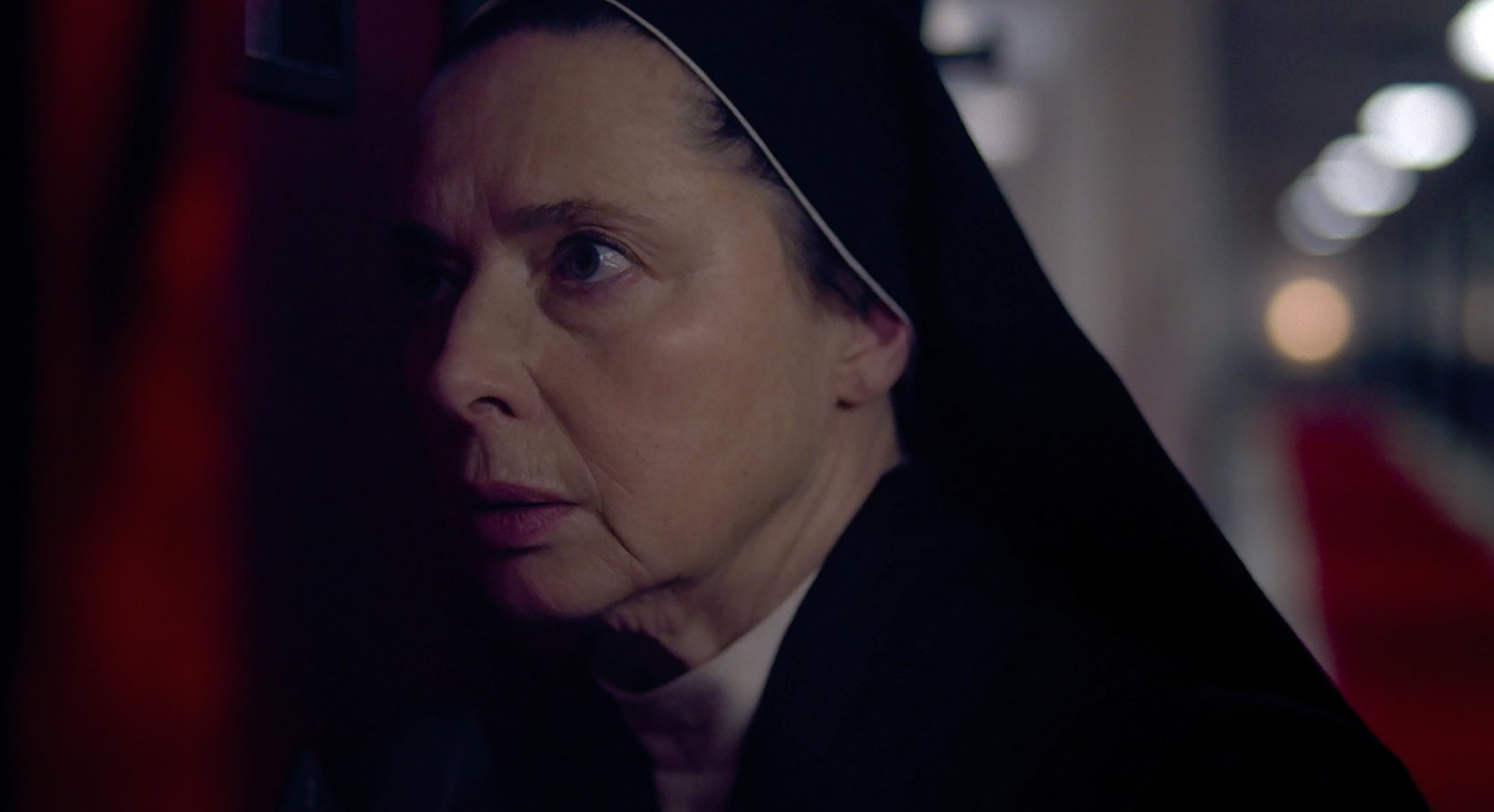Her turn as Sister Agnes in Edward Berger’s ‘Conclave’ could well see the Italian actress, and farmer, nabbing her first ever Golden Globe award, come January 5th. So I wanted to find out how she mastered her performance filled with quiet power.
In John Patrick Shanley’s film Doubt, based on his play, there is a scene which involves the priest in question, Father Brendan Flynn played by the late, extraordinary Philip Seymour Hoffman, eating a meal with his peers. They guzzle down wine, eat red meat and enjoy to the fullest the pleasures of the culinary art. At the same time in a different lunch room, Sister Aloysius Beauvier, the parish school principal played by Meryl Streep, is sitting down with her fellow nuns to meager helpings of root vegetables and other beige foods, in dire contrast to the lavish meal enjoyed by the men in the Church.
In Conclave, Austrian director Edward Berger takes that idea, the concept of gender inequality in the Catholic Church, one step further by adding it to the mix of his thriller-like story of power and religious politics. The result is breathtaking. In the film, based on the novel by Robert Harris, while the men decide the fate of the institution by choosing the next pope, the women — or rather the woman Sister Agnes, played by Isabella Rossellini — runs the show. Quietly, with a somber silent grace that leaves the viewer in awe.
When asked how she found her “presence” in those scenes, which give her very little dialogue and yet sees her exude quiet power, Rossellini admits, “I witnessed it, because I am Roman and Catholic, and went to Catholic school, so I know that there was a very specific hierarchy — but women were not submissive. They were silent, but not submissive.” Bingo.
In fact, in a key moment in the film it is Sister Agnes who seems to decide the fate of the future pope, in a powerful move that although — spoiler alert! — probably set up and not by her, still gives Sister Agnes the power to make a history-changing decision.
Rossellini, throughout this fall’s events centered around the awards-nominated film — which also includes a Golden Globes nomination for Ralph Fiennes as Cardinal-Dean Lawrence who leads the conclave to find the new pope — has been very clear to point out that the instructions and staging of her director helped make the character of Sister Agnes come alive for her. She is humble, as only women tend to be when it comes to pulling off something extraordinary.
“I remember the first day, one of the first day I shot, that it was a wide shot of something that can be spelled more by directing or by photography than by acting and it was us, the nuns, walking, and the cardinal walking,” she tells us during a press conference online for Golden Globes voters. “First of all we were like oil and vinegar, we never mixed,” she continues, “we were walking fast, with a direction, because we had to clean and prepare... and the cardinal were all — it was like a choreography, they were all talking to one another.” Through that “choreography” as she calls it, but also the colors of the clothes worn by both sides “you had these dots moving differently, and you immediately understand the role of each one. And that was very inspiring to me. Because I understood I had to be a shadow.” She says, concluding “but shadows are always present. And that’s how... the shadow was my inspiration.”
When talking to Rossellini about the role, Berger admits “I said, ‘Listen, the role is very silent for a long time. But don’t see this as a small role, this is a central role. She is sort of the keeper of all these guys who have come together, and she observes everything. And I’m going to film that. I really want to see what you’re thinking’.” Which of course is a direction she took to heart and thus brought the character to life, in a way only the daughter of legendary director Roberto Rossellini and Hollywood star Ingrid Bergman could have.
Rossellini recently received the European Achievement in World Cinema from the European Film Academy, for her outstanding contribution to film.
During a short online roundtable I ask Rossellini, herself a modern woman, one who is not afraid to speak out herself and who always dresses like a true fashionista, what the most interesting aspect of playing Sister Agnes was. “It was interesting to play a character who doesn’t speak,” she answers, without missing a beat, “because nuns are supposed to be servant and subservient. But they made that choice, you know.” She continues by saying “Sister Agnes made that choice, and still in silence, she has authority, she’s not oppressed, I don’t think she is — she has great dignity and strength.” She also points out that “I felt sometimes that the cardinals themselves were intimidated by her presence, and the fact that she’s not in the ‘brawl’, she cannot vote, gives her more power.”
Next time I will be tempted to raise my voice, I’ll remember those words.
All images used with permission.
